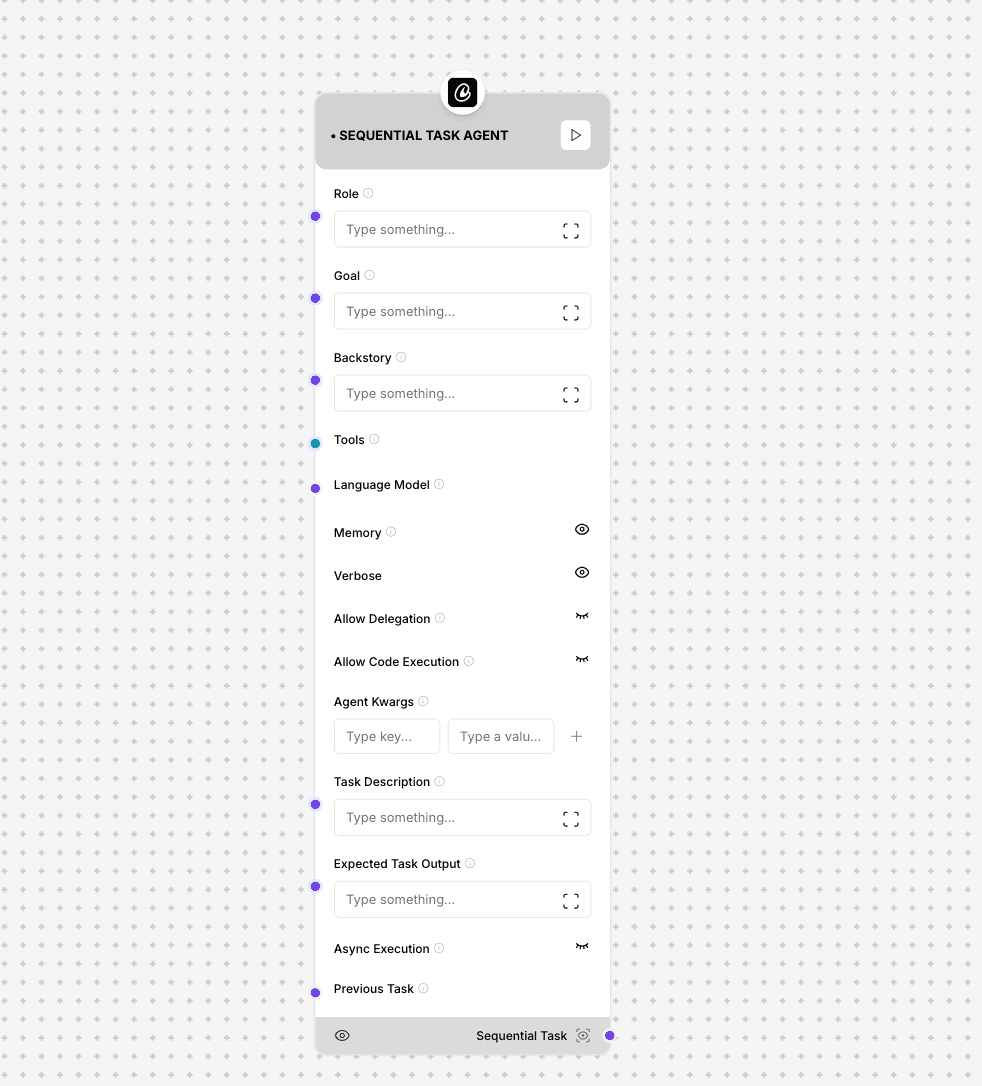Sequential Task Agent
The Sequential Task Agent is designed to execute a series of tasks in a predefined order, managing dependencies and ensuring proper task completion sequence.

Sequential Task Agent interface and configuration options
Configuration Parameters
Required Parameters
- Role: The role or purpose of the agent
- Goal: The objective to be achieved
- Backstory: Context for the agent's purpose
- Tools: Available tools configuration
- Language Model: The language model to use
Optional Parameters
- Memory: Agent memory configuration
- Verbose: Detailed logging option
- Allow Delegation: Enable task delegation
- Allow Code Execution: Enable code execution
- Agent Kwargs: Additional configuration options
Output Format
{
"taskId": string,
"status": "completed" | "in_progress" | "failed",
"sequentialTask": {
"currentStep": number,
"totalSteps": number,
"completedTasks": array,
"remainingTasks": array,
"metadata": {
"startTime": string,
"estimatedCompletion": string
}
}
}Example Usage
const sequentialTaskAgent = new SequentialTaskAgent({
role: "Data Processing Agent",
goal: "Process and analyze customer data",
backstory: "Specialized in handling complex data processing tasks",
tools: ["dataProcessor", "analyzer", "reporter"],
languageModel: "gpt-4",
memory: true,
verbose: true,
allowDelegation: false,
allowCodeExecution: true,
agentKwargs: {
maxRetries: 3,
timeout: 3600
}
});
const result = await sequentialTaskAgent.execute({
taskDescription: "Analyze customer purchase patterns",
expectedOutput: "Detailed analysis report"
});Additional Resources
Best Practices
- Define clear task dependencies
- Set appropriate timeouts for tasks
- Implement proper error handling
- Monitor task progress
- Use task delegation wisely